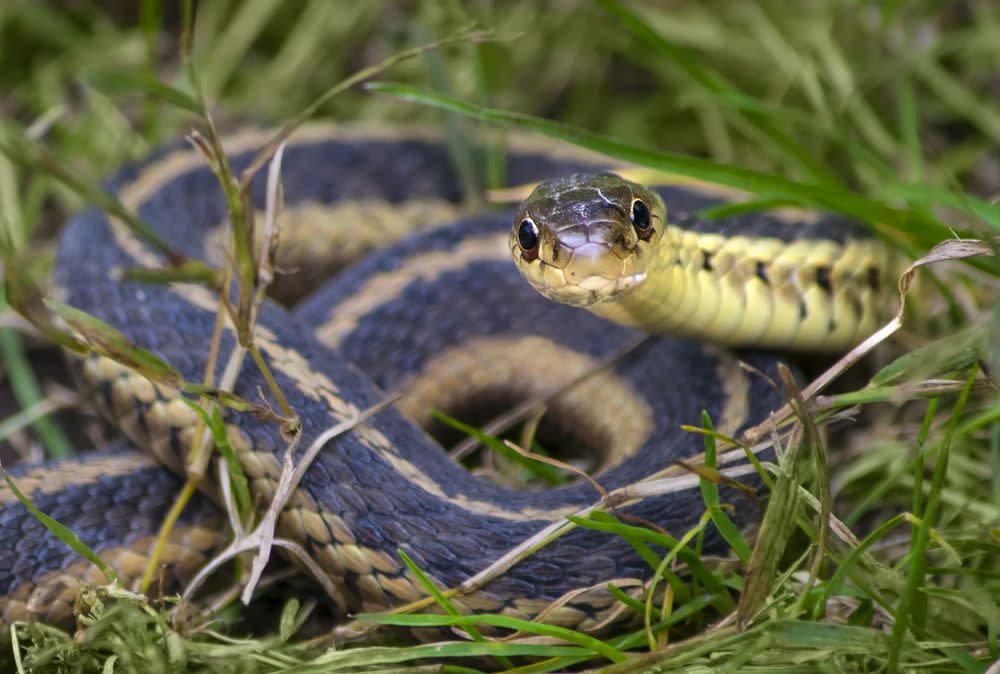Snake on a plane freaks out passengers on Florida to Newark flight
A slithery passenger who boarded a New Jersey bound flight from Tampa, Fla., without a ticket was removed from the plane by authorities following a safe landing at Newark Liberty International Airport.
The culprit was a harmless garden snake that apparently braved the 1,000 mile Monday afternoon trip aboard United Airlines flight 2038.
“Passengers in business class started shrieking and pulling their feet up,” one traveler told News 12 The Bronx.

Garden snake (Shutterstock/)
Crew members reportedly asked airport workers to help extract the non-venomous reptile. Airport operations were not impacted by the incident and no injuries were reported.
There was also no shortage of references to the 2006 Samuel Jackson film “Snakes on a Plane” as news of the incident spread on the internet.
In that film, venomous serpents are planted on a cross-country flight to make sure a witness testifying against a mob boss doesn’t reach his destination. A highlight from the movie includes a frustrated Jackson declaring “I have had it with the motherf---ing snakes on this motherf---ing plane!”
Real life Snakes on a Plane! Snake in cockpit forces Australian pilot to make emergency landing
It isn’t unheard of for snakes to find their way onto planes in the real world. In February, Channel News Asia reported that an AirAsia flight crossing Malaysia was rerouted to be “disinfected” after passengers spotted a snake in an overhead light fixture.
An airline officials reportedly called that occurrence a “very rare incident.”
The snake in Newark was discovered shortly after the Boeing 737 touched-down shortly after 3 p.m. It was taxiing when the scale-covered stowaway was noticed, CNN said.
Garden snakes, sometime called garter snakes, are generally between 20 and 30 inches long, according to the National Park Service. While carnivorous, such snakes reportedly feed on insects, small fish, rodents, and tiny birds, and are rarely dangerous to humans.
